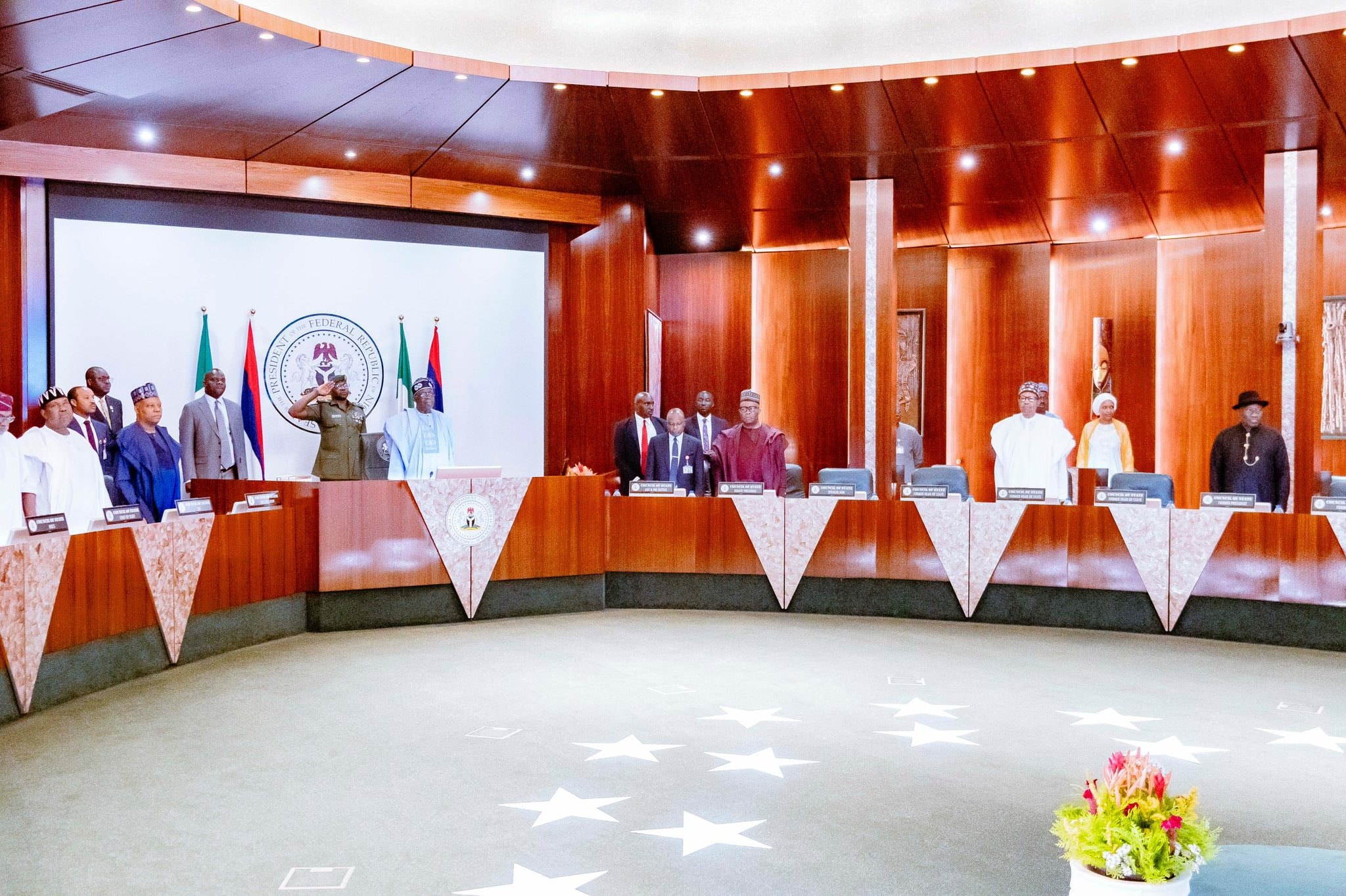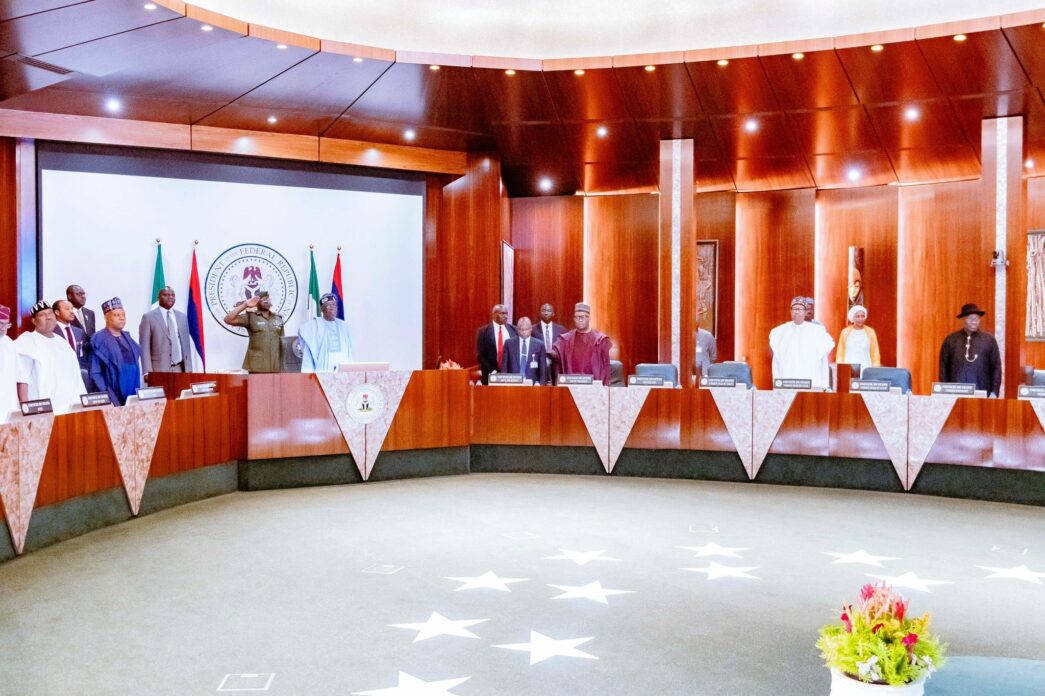Council of state meeting
BY TOCHUKWU JIMO OBI
The recent decision by President Bola Ahmed Tinubu to remove several names from the list of individuals earlier shortlisted for presidential pardon continues to generate widespread attention and public debate.
Initially, a total of 175 persons were reportedly recommended for pardon, but following intense public criticism, that list has now been drastically reduced. The presidency’s clarification came through the presidential adviser on information and strategy, Bayo Onanuga, who provided insights into the review process.
According to Onanuga, individuals convicted of serious crimes, including kidnapping, drug-related offences, human trafficking, fraud, and unlawful possession of firearms or arms dealing, were deleted from the list. He further explained that in some cases, those who had been pardoned in the earlier list now had their sentences merely commuted, rather than fully forgiven.
Advertisement
Onanuga noted that the review became necessary in view of the seriousness and security implications of certain offences. He emphasised the need to be sensitive to the feelings of victims and society, to boost the morale of law enforcement agencies, and to ensure Nigeria’s adherence to international and bilateral obligations.
While the revision of the list has been widely welcomed, one critical question remains unanswered: what role did members of the National Council of State (NCS) play in the entire process? Traditionally, successive administrations have convened meetings of the council of state to deliberate on major national matters, including issues of pardon and clemency.
However, in this instance, one cannot help but wonder why none of the council members raised objections when the original list of 175 names was presented. Was it that the details of the offences committed by those recommended for pardon were not made available to them? Or did they merely endorse the list without scrutiny, trusting that all necessary due diligence had been done?
Advertisement
If the latter is the case, it is indeed unfortunate. The council of state is a highly respected advisory body that takes critical and far-reaching decisions on behalf of the Nigerian people. Its members, including former presidents, governors, and key national figures, owe it to the public to scrutinise every matter that comes before them, especially one as sensitive as a presidential pardon list.
Going forward, it is important that the agenda for council of state meetings be circulated well ahead of time, with detailed documentation of all cases or issues to be discussed. This will enable members to study the materials thoroughly and make informed, meaningful contributions during deliberations.
That said, it is commendable that President Bola Tinubu listened to the voice of public outcry and acted decisively to address legitimate concerns. His decision to transfer the responsibility for compiling future presidential pardon lists to the federal ministry of justice is a step in the right direction. It ensures that proper legal and ethical filters are applied before such sensitive recommendations reach the president’s desk.
Indeed, what is worth doing is worth doing well. The credibility of any government lies not only in the actions it takes but also in its willingness to acknowledge errors, listen to the people, and make corrections in the public interest. By acting swiftly to review the pardon list, President Tinubu has shown that leadership also means responsiveness and accountability.
Advertisement
Tochukwu Jimo Obi, a public affairs commentator, writes from Abuja.
Views expressed by contributors are strictly personal and not of TheCable.

